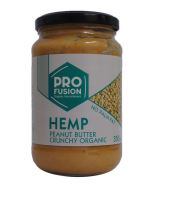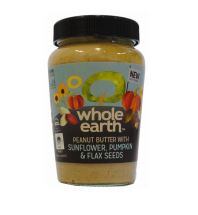Using data from Information Resources, Mintel estimates value sales in the nut butter category in the UK grew to £88 million (€98.7m) in 2016, equivalent to a year-on-year growth of 14% and an impressive 80% rise since 2011.
Global food and drink analyst at Mintel Edward Bergen says: “The category has profited from its natural and healthy image, and has welcomed a wider range of nut bases in recent years as premium brands have looked to offer more diverse flavours and nutritional benefits beyond the perennial family favourite, peanut butter.”
In recent years, companies have extended their portfolios beyond peanut to include almond, cashew, coconut and Brazil nut butters on sale in the UK, and are now adding seeds into the mix to boost its health profile further.

“This new combination is likely to generate attention in what has become an increasingly competitive market by not only tapping into the rising profile of seeds, but also demand for positive nutrition and different textures across food and drink categories,” says Bergen in a Mintel report.
Bergen points to Meridian Foods as an example of a company that is successfully generating attention by tapping into textural innovation, the rising profile of seeds and demand for positive nutrition.
Last year, the firm, which was recently acquired by Northern Ireland-based SHS Group for an undisclosed amount, launched a peanut butter with pumpkin, sunflower and black sesame seeds.
Other British brands include Profusion, whose crunchy organic peanut butter contains hemp seeds or Whole Earth’s peanut butter with a mix of sunflower, pumpkin and linseed (also known as flax) seeds.
Seeds are not limited to nut butters, however. In fact, the trend is being driven predominantly by the prepared meals, bakery, and seasoning categories, says Mintel. “The natural and wholesome image of seeds has made them an attractive proposition across industries.”
“One factor that is driving seeds’ popularity is their protein content, as a rise in flexitarian, vegetarian and vegan diets means consumers seek essential

amino acid in products other than meat. Seeds can also be a good source of calcium, fibre, phosphorous, iron and omega-3 and 6, making them a compact and easy way of adding positive nutrition to any formulation.”
Aside from the health benefits, consumers also enjoy the texture that seeds give.
And while 2017's big food trend was colour, 2018 is the year of texture, according to Mintel, which predicted it to be the defining trend of the year.
“They can also help brands engage more senses beyond taste as consumers look for textural innovation in a category where chunky and smooth have long been the only textural descriptors to have widespread use,” writes Bergen.
In other regions, manufacturers have been experimenting with new textures with other ingredients. In the Philippines, First Harvest’s peanut crunch uses rice pops while US brand Reginald's has a bourbon pecan peanut butter that boasts of its “lite crunch”.
